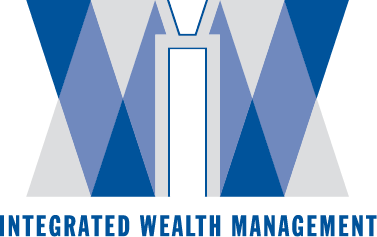Tax principles are notoriously complex and ever-changing; this is why it’s often advantageous to partner with a tax professional. Because we believe in our clients making informed decisions, many of our clients gain great knowledge about the tax principles affecting their retirement plan. But not to worry, you can leave the task of ‘staying on top of tax law’ to us; just know we’re always here to help you make educated decisions so you don’t fork over more than your fair share to Uncle Sam.
So, do you have a tax-efficient retirement plan? If so, you’re on the right track to likely saving thousands throughout your lifetime. It’s all about utilizing tax-advantaged accounts and understanding when and how your income is taxed.
When it comes to taxes, ignorance is not bliss, and what you don’t know really could hurt your pocketbook. Whether you’re deep into your working years or are newly retired, the goal is the same — At IWM, we can help you keep more of your hard earned money this tax season.
Reducing Taxes While Saving for Retirement
Tax-advantaged accounts are available to Delaware workers and retirees. While some are offered through an employee benefits package, others must be sought out. Here are a few examples:
Health Savings Account (HSA) — If your health insurance package includes an HSA, utilizing it will help you save on taxes. By depositing pre-tax dollars into the account, you’re lowering your taxable income for the year.
Individual Retirement Account (IRA) — IRAs come in 2 forms, Traditional and Roth. Most qualify to contribute up to $6,000 per year. With a Traditional IRA, you fund the account with pre-tax dollars. These contributions are tax-deductible in the year you make them. With a Roth IRA, you contribute funds you’ve already paid taxes on, meaning you will not owe taxes on qualified withdrawals in retirement on the initial contribution or the gains.
Delaware 529 Plan — Also called a DE529, this tax-advantaged account is for those saving for education expenses. The money you put into the account has been taxed, the earnings grow tax-free and withdrawals are not taxed when used for qualifying educational expenses.
This list is not comprehensive but shows there are tax-advantaged accounts available to everyone.
The Traditional vs Roth debate is one many struggle with. If your income today is higher than you expect it to be in retirement, then you may want to consider a traditional retirement account. In this scenario, you’re likely in a higher tax bracket today than you’ll be when you withdraw the funds in retirement. With traditional retirement accounts, you pay the tax when you withdraw.
On the contrary, if you feel you may be in a higher tax bracket during retirement, you may wish to pay the taxes upon deposit so you can withdraw your money tax-free. If this is you, you’ll likely opt for a Roth retirement account.
Reducing Taxes During Retirement
The rules around taxes don’t change once you’re retired. You’ll still fall into a tax bracket based on your taxable income. This includes income from traditional retirement accounts, dividends, other investment withdrawals not previously taxed, real estate sales, etc.
One component to reducing taxes during retirement is understanding where you may have already paid taxes (think Roth retirement accounts), along with where you will owe taxes. Your retirement income is likely several streams of income and you may choose to tap into some investments sooner than others.
Retirement Withdrawal Strategy
Knowing when and how taxes are owed is part of your retirement withdrawal strategy. A solid retirement withdrawal strategy is crucial to maintaining wealth and can greatly impact the inheritance or gifts you can leave to future generations or charitable organizations. This is why we feel retirement is a notable milestone, but certainly not the end of your retirement planning journey.
While we’d love to dive into more detail, this component requires great planning, an understanding of your goals, and a thorough review of your finances.
Retire to a Tax-Friendly State
One thing we can tell you with certainty is where you live will impact your cost of living in retirement. While weather or proximity to friends and family are likely top considerations when deciding where to reside, recognize other factors such as housing, transportation, and the cost of your favorite hobbies. You don’t want a high cost of living to put a damper on retirement fun or unexpectedly throw off your budget.
Whether you live in Delaware or are considering retiring here, you’ll find Delaware to be a tax-friendly state. No sales tax, no death tax, and relatively low property taxes just skim the surface of the many positive reasons to retire to Delaware. If you’re deciding where to reside, take the time to read a couple of our other recent blogs to learn more about retirement life in Delaware:
Take a Step Towards Gaining Confidence In Your Retirement Tax Plan
Proper tax planning is an imperative component of a thorough retirement plan. At Integrated Wealth Management, our advisors are both CPAs (Certified Public Accountants) and CFPs (Certified Financial Planners).
We’re prepared to help you navigate each stage of retirement, from answering all your questions during your working years to leaving a legacy for future generations. Let us do the heavy lifting when it comes to tax season this year so you can be confident you’re keeping as much of your hard-earned money as possible now and into the future.
Tax planning and preparation is just one component of our wealth management services — to learn more, reach out to an IWM advisor today.



